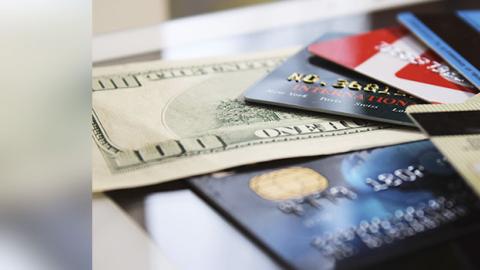
No More Excuses for a Bad Habit
CBN.com Maureen is a financial counselor. When asked what the greatest financial need is today, she responded, “Developing and using a budget.” She sees families who make adequate incomes but don’t have a plan for spending.
Their spending tends to be out of control. In fact, they take more time planning their vacations than their budgets.
Families who have been able to get by from paycheck to paycheck are having a harder time dealing with rising expenses. They are struggling to pay their monthly bills.
Consumers, convinced to buy the biggest houses they can as “investments,” see how housing costs are eating up a huge percentage of their incomes. The subprime mortgage crisis and its rippling effects are also being felt across the country.
Car payments and gas costs take another chunk out of people’s incomes.
Credit card debt continues to be on the rise. Gail Cunningham, a spokesperson for the National Foundation for Credit Counseling, says that people are charging “food, fuel, medicine, day care, and any incidental items.”
Credit counselors report that more and more people are using their credit cards and home equity loans to survive. They continue to pile on debt during the tough times. Few have set aside emergency funds or savings accounts.
Today’s culture is fueled by credit. Piling on debt has been habit-forming. Families who have been dependent on credit are facing the flat music of reality. Using debt to pay for living expenses and other debt becomes a vicious cycle. This is not a winning strategy.
Charging whatever one wants or needs for a “priceless” experience is turning into a costly and painful experience. Consumers are fast realizing they must make lifestyle changes now to survive financially.
Families are feeling apprehensive about the rise in everyday costs. Tight finances are forcing them to focus on their spending habits.
Peter Bernstein, a financial consultant and historian, has witnessed financial crises since the Depression. When interviewed by The Wall Street Journal, Bernstein says recent troubles are worse than he has seen since the Depression and threaten to continue to roil markets. “We are going to have an extremely risk-averse economy for a long time,” he said (The Wall Street Journal, Saturday/Sunday, April 26-27, 2008, B1).
People are learning there are no more excuses for taking on debt and remaining in debt. The economic environment doesn’t indicate better times in the near future.
What can you do to turn things around financially for your family and for yourself?
Face the facts.
Know what you owe. Know where you’re at financially. Make a list of your creditors, the interest rates, monthly payments due, and total amounts owed.
Why do you routinely go in the red? What repetitive behaviors need to be addressed to keep from charging and continuing in the debt cycle?
Work on making your budget balanced every month.
Calculate your monthly income, keep track of your spending, and figure out how to spend it wisely. Figure out how to live within your means. What can you do to increase your income? What small costs and big costs can be cut? Decide what you can truly afford.
Bring the family into the conversation and decision-making of the budget. Consider how family members can compromise and give a little to balance the monthly budget.
Have a plan to get out of debt.
Take charge of your circumstances. Look for workable ways to eliminate debt. If necessary, see a financial counselor.
Money alone will not help you. Learn how smart financial planning can work for you. Financial intelligence will be the winning factor.



